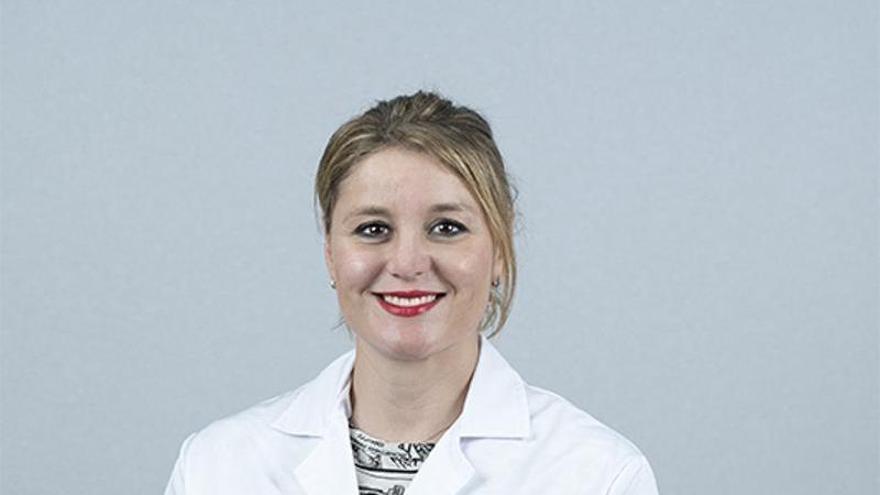95% of cervical cancer cases can be prevented by vaccination

Dr. Raquel Jimenez, specialist in Gynecological Service of the Hospital Quironsalud Murcia warns in World HPV Day which marks next Monday, March 4, that vaccination against human papillomavirus can prevent 95% of cases of infection. cervical cancer.
Human papillomavirus (HPV) is sexually transmitted infection is common and affects both men and women, and while most cases are harmless and go away on their own, “some strains of this virus are associated with more serious health problems, including cervical cancer,” warns Dr. Jimenez.
Up to 80% sexually active women They are exposed to at least one type of HPV throughout their lives. In turn, 80% of these infections are usually transient.
majority These infections do not cause symptoms. and in 80-90% of cases they usually heal without treatment. There is a percentage of people, approximately 10-15%, in whom the virus persists over time, mainly due to the type of virus, smoking, and immunosuppressive states.
Raquel Jiménez, gynecological specialist at the Quironsalud Murcia Hospital, warns that this virus resistance over time is a major risk factor for the development of lesions and that “a small percentage of 10 to 20% may cause cervical cancer.”
Dr. Jimenez recommends regular screening tests, such as cervical cytology (Pap smear) and HPV test, as a primary measure to detect abnormal cellular changes in the early stages.
Vaccination against HPV is the most effective measure for preventing cervical cancer
Many people infected with HPV do not know they have the infection because symptoms do not always develop, and so the person who has it can pass it on to other people without even knowing it. “To prevent the spread of this virus,” says Dr. Jimenez, “it is important get vaccinated against human papillomavirus and thus protect us from infection by certain strains of HPV.”
The vaccine is designed to protect against HPV strains which are more likely to cause cancer and are recommended for teenage boys and girls before sexual intercourse. “That’s why doctors recommend that all boys and girls get the HPV vaccine between the ages of 9 and 11. Vaccination is also indicated for adults to prevent cancer of the cervix, rectum, vagina, penis and throat.”
Conization is a method of treating precancerous lesions of the cervix.
conization It is performed on women who have already been diagnosed with precancerous or precancerous lesions on the cervix. The purpose of this intervention is removal of part of the cervix or cervix in which there is an injury and which also has the shape of a cone, hence its name.
“Conization,” explains Dr. Natalia Siegert, a specialist in Gynecological Service Quirónsalud Torrevieja and Alicante“performed vaginally, usually with locoregional anesthesia or deep sedation and to cut the cervical tissue; Usually an electric scalpel, diathermic loops or a laser are used, which makes it possible to achieve more precise tissue cutting and with less bleeding than using a classic scalpel.”
“Conization does not treat human papillomavirus infection, only removes precancerous tissue of the cervix “which can occur after a persistent and active HPV infection,” explains specialist Quirónsalud. “In fact, it is possible that after conization the virus persists in other places in the genital tract. Therefore, to prevent the same type of injury from recurring, it is necessary to maintain gynecological examinations already in these patients.”
Quironsalud in the Valencian Community and Region of Murcia
Quirónsalud has 10 centers in the Valencian Community and the Region of Murcia, forming a leading group at the forefront of private medicine, the epicenter of which is people.
Quironsalud occupies a leading position in the field of private healthcare in the Valencian Community and Murcia in terms of technological equipment, as well as comfort and benefits for both patients and professionals who provide their services in its centers.
About Kironsalud
Quirónsalud is a leading hospital group in Spain and, together with its parent company Fresenius-Helios, in Europe. In addition to its activities in Spain, Quirónsalud is also present in Latin America, especially in Colombia and Peru. In total, it employs more than 45,000 specialists in more than 160 medical centers, including 55 hospitals with approximately 8,000 hospital beds. It has the most advanced technologies and a large team of highly specialized professionals of international prestige. Among its centers are the Jiménez Díaz Foundation University Hospital, Teknon Medical Center, Ruber Internacional, Quironsalud University Hospital Madrid, Quironsalud Barcelona Hospital, Dexeus University Hospital, Gipuzkoa Polyclinic, General University Hospital of Catalonia, Quironsalud Sagrado Corazon Hospital, etc.
The group promotes teaching (nine of its hospitals are university hospitals) and medical research (it has the FJD Health Research Institute, accredited by the Secretary of State for Research, Development and Innovation).
Likewise, its health service is organized into cross-cutting units and networks, allowing it to optimize the expertise gained across different centers and the clinical implementation of its research. Quirónsalud currently develops many research projects throughout Spain and many of its centers carry out cutting-edge work in this field, being pioneers in various specialties such as oncology, cardiology, endocrinology, gynecology and neurology, among others.